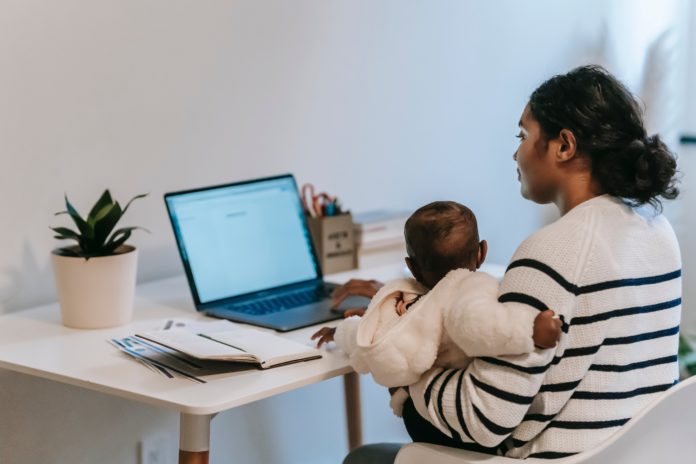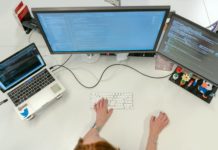EngageRocket, has announced The State of Employee Experience 2021 report in collaboration with the Institute for HR Professionals (IHRP) and the Singapore HR Institute (SHRI). This follows from their inaugural report last year.
By leveraging aggregated and anonymised data from thousands of employees’ survey answers, the report captures the pulse of the Singapore workforce as the pandemic drags on.
Earlier this year, IHRP and SHRI put together a complimentary programme aimed to support organisations measuring and improving employee experience and well-being. About 8,000 employees across various industries took part in the programme, allowing a deeper understanding of their resilience, wellbeing and engagement. With over 390,000 responses collected and analysed between March and June, this report represents the largest and consistent dataset on the state of workplace sentiment in Singapore.
Overall, the findings have shown that the Singaporean workforce this year is less resilient with poorer mental well-being than last year. In this report, we share our findings from three key impact areas – the state of employee resilience, its effects on mental well-being and how office, hybrid and remote work influences different segments of employees – as well as the action points necessary to ensure retention, productivity and well-being. Key insights include:
Overall well being and resilience are at a decline
In 2021, overall engagement has reduced by 14% from last year. Heavier workloads, resulting from a lack of WFH preparation and multiplying home obligations, have led to employees experiencing 3x more burnout.
Caregivers were also identified as being at particular risk, and the report highlights that employees with dependents need to be treated as a target demographic for employee engagement, with initiatives also addressing the dependents they support.
Only 64% of employees declared being confident about the future of their organisation, compared to 81% in 2020. This suggests an increased number of languishing employees that are more prone to feel neutral about their organisation’s future than optimistic.
Meanwhile, the results suggest that the youngest demographics are struggling the most. The number of millennials reporting healthy levels of mental well-being is significantly lower at 40% vs. 60% of Boomers, and only 67% of young employees indicated they are eager to stay on in their current organisations. In comparison, 80% of Gen X and 78% of Boomers plan to do so.
The report highlighted that millennial well-being and resilience requires more observation and astute measurement, emphasising that there is no one-size-fits-all solution. When asked about the organisational action that they would prioritise, millennials indicated information on safety measures for returning to the workplace as the highest priority, communication on job security second, and clarification of new processes third.
“After a year of economic volatility, personal anxiety, and unpredictable change, 2020 has been a demonstration of human beings’ incredible resilience in the face of a crisis, and our ability to adapt,” commented Chee Tung Leong, CEO and co-founder of EngageRocket.
“As we marked the sobering anniversary of the first Circuit Breaker, it is important to take stock of the long-term impact of COVID-19 and implement tactics to address new and emerging challenges. HR and people leaders need to continually iterate the employee experience strategies with relevant and timely data.”
Leong elaborates, “Although employees are still showcasing high levels of productivity, it is masking their struggles and risk of burnout. Already, we see an uptick in resignation rates from workforces in other countries such as the United States.”
“In order to prevent talent attrition, companies need to understand that mental well-being is multi-faceted and should leverage on data to effectively design an impactful employee experience strategy and implement new indices for stress. Different segments, such as employees with school-going children, have different concerns that contribute to their disengagement.
“This issue cannot be simply resolved with generic, “one-size-fits-all” wellness programmes. Critically, 2021 will be a make-or-break year for people management and organisational success. Hence, agility is no longer a buzzword in the pandemic era, and companies need to be agile enough to address the increasing state of languishing amongst their employees before it is too late.”
Remote workers are more productive than those working in the office or in a hybrid model
With government regulations and restrictions constantly undergoing change, before the return to Phase Two, several companies have opted for hybrid work – where employees spend a designated number of hours in office and the rest working from home.
The results suggest that, contrary to popular opinion, remote workers are more engaged and committed. Remote environments were shown to be the most conducive for productivity, with 77% of remote employees reported being productive. Meanwhile office workers are slightly less productive at 73%, while hybrid workers were the least productive of all at 72%.
Simultaneously, 46% of office workers are detractors compared to 32% of the remote workforce. 77% of remote employees indicated wanting to stay on in their current organisation vs 69% for office workers.
“We need to be mindful about the mental health of our employees. Working from home on extended working hours over long periods of time can also bring about detrimental issues, “remarked Alvin Goh, Executive Director of Singapore Human Resources Institute (SHRI).
“Leaders must adopt an emphatic mindset and to lead with a human. Digitalisation is changing how we react to the pandemic and how it has been changing not only to the business but as well the human resource ecosystem.
“We, as HR professionals, need to help our employees experience the positive impact of these rapid changes and not bear the negative changes alone,”
Digital transformation and communication will drive sustainable change
The results showed that managers are almost 2.3x more engaged than employees in non-manager roles, suggesting that more responsibility can aid engagement. It also showed that the most impactful way to influence engagement is to invest in quality of feedback and making employees feel supported.
As a result, companies will need to carefully determine the pace at which they want to transition back to a physical office. Given how well employees have adapted, their preferences should play a role in this decision.
Additionally, it was revealed that digital (66%), communication (47%), leadership (40%), creativity (39%) and problem-solving (37%), are the top five in-demand skills among employees. These should serve as the baseline for upskilling investments.
“These latest findings provide valuable insights how both new and experienced employees are coping in an increasingly virtual workspace, and its impact on work relationships and culture. It highlights the importance of new leadership skills in this environment for better collaboration and to deliver on team goals,” says Mayank Parekh, CEO of Institute of HR Professionals (IHRP).
“Finally, the study provides organisations with a more holistic measure of overall health, well-being and resilience of their workforce that will better align their human capital interventions to employee performance and business outcomes,”














